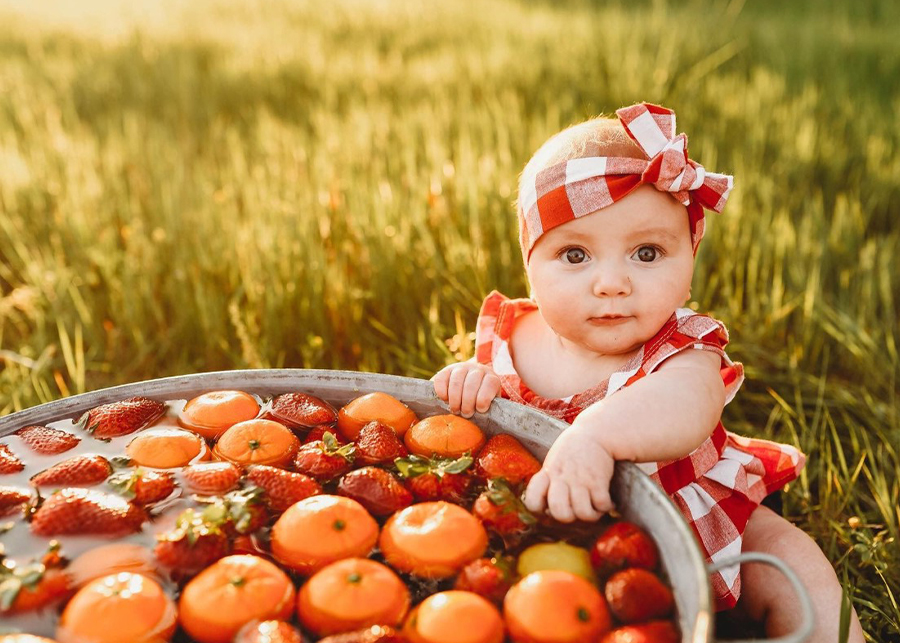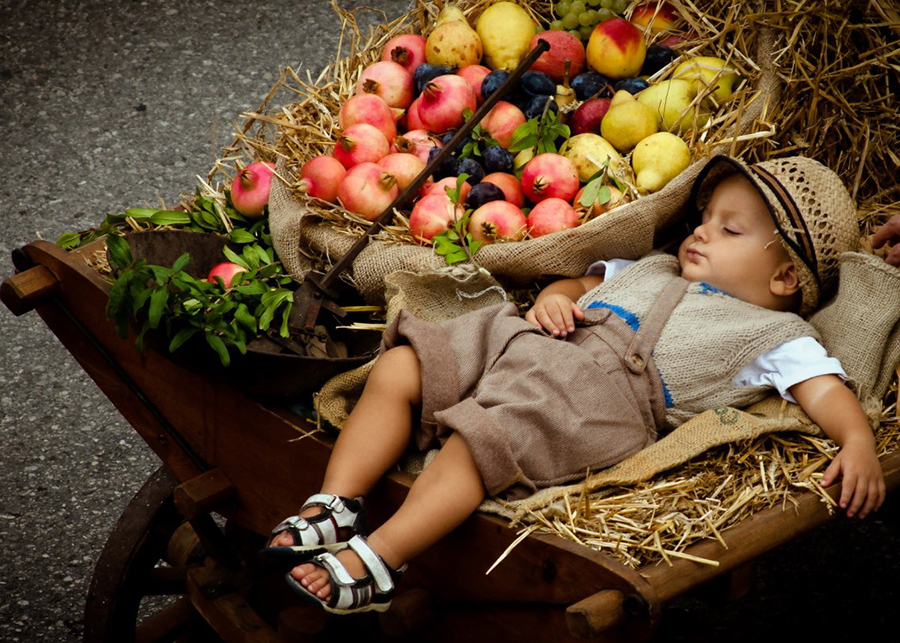Parents always want to give the best for their baby. When it comes to introducing solid foods, parents have a lot of choices. One good choice is fruit. It tastes great, is easier to mash or slice, and in some cases introduces new flavors that babies may not be used to like pineapple or mandarin oranges. Learn more about the best fruits for baby under one year of age so you can make the right decision for your baby.
Fruits are a great option for your baby’s diet. They’re easy to dice or mash, and they’re packed with vitamins and nutrients. However, before introducing any new food to your baby, consult your pediatrician to make sure it’s safe. Below are some suggestions for some of the best fruits for baby under one year of age.

Squash is an excellent source of vitamin C
Squash is an excellent source of vitamin B6, vitamin C, and fiber. These nutrients help the body build and repair tissue. Squash also contains beta-carotene, an antioxidant. This antioxidant aids in communication between cells and may even prevent the growth of cancer cells.
Squash is a healthy vegetable for your baby to eat. Its rich fiber and vitamin C content make it a perfect food for your little one. You can make a simple squash porridge for your baby by boiling the sago in water. You need to be patient and stir the mixture frequently. Let the porridge cool completely before serving.
Mango is a good option for toddlers
For toddlers and babies, mango is an excellent fruit to introduce to their diets. It is easy to mash and is perfect for the transition from pureed fruit to finger foods. You can also make your own mango puree without a blender by pressing the mango down with a fork. It’s best to use a fully ripe mango, though. Blending the fruit may leave lumps, which are difficult for babies and toddlers.
While there are numerous health benefits of mango for babies and toddlers, there are also some myths surrounding its safety. For example, mangoes are high in Vitamin A, which helps with vision development. Vitamin B6 can also improve concentration and memory.
Peaches are a good alternative to plums
Peaches are an excellent source of vitamins and nutrients, especially Vitamin A. They also contain antioxidants which help boost your baby’s eyesight. Peaches are available during the summer, and they are high in water and salt, which keep your baby’s body hydrated. Peaches are also a great source of potassium. As long as you buy the fruit in season, peaches are a great food for your baby.
Peaches are usually introduced to babies at about four to six months. They are an excellent fruit for this age because they are easy to digest. In addition, peaches are juicy, sweet, and delicious. They can be cooked in a variety of ways, including poached, steamed, or baked. However, peaches lose their nutrient value when cooked for long periods of time. To get optimal nutrient retention, baking is preferred.
Apricots are a good option for toddlers
Apricots are good for your toddler’s health, and they can be given to your baby in small amounts. However, it’s important to wash them first. They shouldn’t be eaten with the peel on. You should also remove the pit before preparing them. Sulfur dioxide in apricots can be toxic to a baby’s digestive system. You can also soak dried apricots in warm water before serving to your child.
The 3-day rule for introducing new foods to a baby is not strictly enforced, but it’s good to follow. When first introducing a new food, start with a small amount and gradually increase the amount. If any symptoms or reactions occur, immediately bring your baby to the pediatrician. Also, fresh apricots are preferred, since dried apricots may have added sugars and preservatives.

Honeydew is a good option for toddlers
Honeydew melon is an excellent choice for toddlers and babies who are just starting to eat solids. It is rich in vitamin C, which helps the body build collagen and strengthens the immune system. It also helps your baby absorb iron, which is needed for healthy growth. Honeydew is also good for relieving constipation in infants. It is easy to cut it into small pieces, so baby can enjoy it without getting too much.
Honeydew can be eaten whole or cut into cubes. It is easy to eat, so it is best to cut it in half or quarters if it’s large enough. You can also eat the rind and cut cubes of the fruit.
Pomegranate is a good source of beta-carotene
When introducing pomegranate to a baby, it’s important to avoid giving the seeds and white skin. The seeds can be irritating to babies, and the juice can be quite sour. It’s best to feed the juice in small amounts and at the right time of day. The juice shouldn’t be given before bedtime, and you should avoid mixing it with other foods. If your baby does like pomegranate juice, consider giving it to them in puree form.
When introducing new foods to your baby, be sure to use small portions until they become used to them. It’s important to introduce new foods slowly to prevent any rashes. Pomegranate juice can help your baby reduce fever and replenish lost nutrients during a fever. It’s safe to start with pomegranate juice as early as six months old, if your baby is ready for it.
Best Fruits For Baby Under One Year Old Result
Blueberries are rich in antioxidants and vitamin C and are one of the best fruits for baby under one year old. Avocados are also good for babies since they are packed with nutrients such as vitamin K, vitamin E, riboflavin, potassium and magnesium. They can be mashed to make a nutritious meal. Bananas are rich in niacin, vitamins B6, B12 and C which promote the healthy development of your baby’s brain, skin and nervous system. Although it contains sugar in the form of carbohydrates, it can increase your baby’s stamina when used as a snack between meals.


